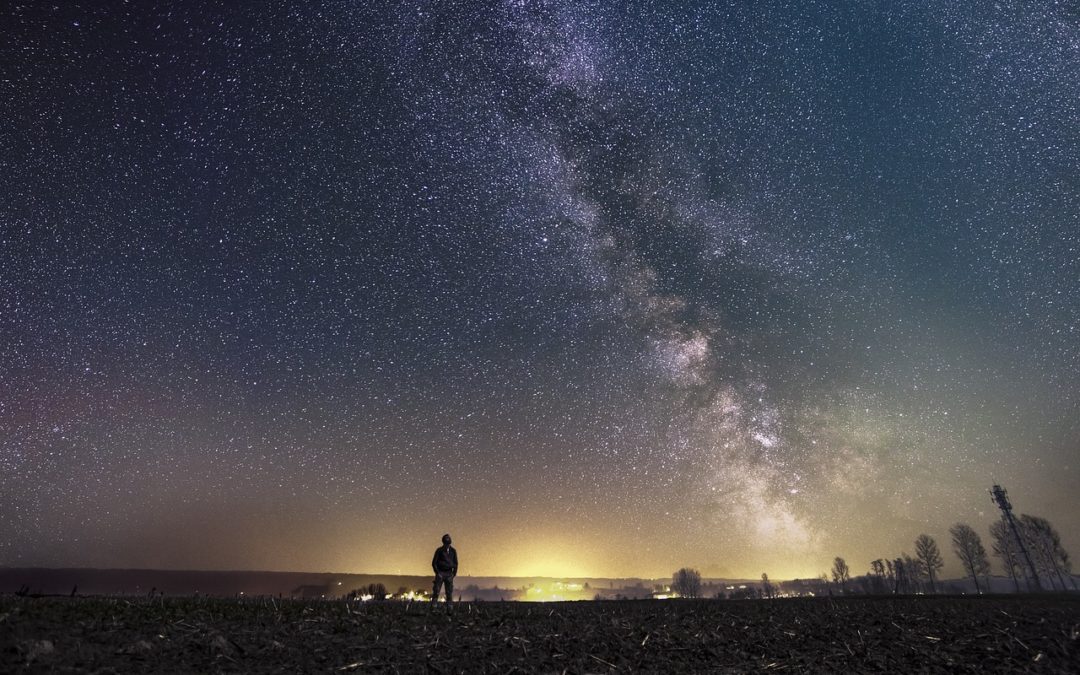
WHO AM I
‘Who Am I?’ Shakespeare’s Hamlet observed: What a piece of work is a man! How noble in reason! How infinite in faculty! In form, in moving, how express and admirable! in action how like an angel! In apprehension how like a god! (Hamlet, II.ii)
Consider the bookends of Psalm 8: O Lord, our Lord, how majestic is your name in all the earth! (8:1a and 9). The words suggest that the starting and the ending of the answer to our question is God. The Psalm speaks of the majesty of God’s name revealed throughout the diversity of his creation.
The Psalm foreshadows the opening lines of Psalm 19: The heavens declare the glory of God, and the sky proclaims his handiwork. Day to day pours forth speech, and night to night reveals knowledge (19:1-2). The ever-repeating pageantry of the heavens, day after day and night after night speak of God’s existence. Although there are no words, the very nature of the universe we see around us reveals the awesome power and perfection of God – the glory of God.
The same theme is evident in Paul the Apostle’s words in Romans 1:19-20: For what can be known about God is plain to them, because God has shown it to them. For his invisible attributes, namely, his eternal power and divine nature, have been clearly perceived, ever since the creation of the world, in the things that have been made.
Writing in his book, God’s Undertaker: Has Science Buried God? Dr. John Lennox, Emeritus Professor of Mathematics, Oxford University, comments: ‘To the majority of those who have reflected deeply and written about the origin and nature of the universe, it has seemed that it points beyond itself to a source which is non-physical and of great intelligence and power.’
Psalm 8 tells us that God will confound the arrogant, rebellious voices of those who are blind to him. In verse 2 we read: Out of the mouths of babes and infants you have founded a bulwark because of your foes, to silence (still) the enemy and the avenger.
Significantly Jesus quotes these words when children lauded him with their songs in the Temple courts in the days before his arrest and crucifixion while the chief priests and the scribes angrily objected. In Matthew 21:15f we read: When the chief priests and the scribes saw the amazing things that he did, and heard the children crying out in the temple, “Hosanna to the Son of David,” they became angry 16 and said to him, “Do you hear what these are saying?” Jesus said to them, “Yes; have you never read, ‘Out of the mouths of infants and nursing babies you have prepared praise’…?”
Who am I? Psalm 8’s answer comes in the form of a reflection on the night sky: When I look at your heavens, the work of your fingers, the moon and the stars that you have established; what is man that you are mindful of him, the son of man that you care for him?
David, generally regarded to be the author of the Psalm, reflects on the night sky with its moon and myriad of stars. This brilliant poet voices his thought that such vastness and complexity must be the handiwork of God. And, as he does we can feel the question exploding in his mind: ‘What is man that you are mindful of him, and the son of man that you care for him?
Stephen Hawking’s answer in his, A Brief History of Time, was to say: ‘We are such insignificant creatures on a minor planet of a very average star in the outer suburb of one of a hundred billion galaxies. So it is difficult to believe in a God that could care about us or even notice our existence’.
To which Dr. Henry F. Schaefer, Professor of Quantum Computational Chemistry at the University of Georgia, USA, responded in his, Science and Christianity: Conflict or Coherence? ‘My response to that statement by Hawking, and to others that have said this over the years, is that that’s a silly thing to say. There isn’t any evidence to date that life exists anywhere else in the universe. Human beings, thus far, appear to be the most advanced species in the universe. Maybe God does care about us! Where Hawking surveys the cosmos and concludes that man’s defining characteristic is obscurity, I consider the same data and conclude that humankind is very special.’
When we reflect on these weighty matters, we will be even more amazed that the God who put together such a vast and complex system, is interested in us, let alone cares for us.
Yes, we are small creatures in a vast universe, but God who created all things is committed to us and cares for us. As Jesus taught his followers: “Even the hairs of your head are all numbered. Fear not; you are of more value than many sparrows (Luke 12:7).
Optional. You may like to read Psalm 8; Hebrews 1:1-4; 2:5-9.

